Does gold rust?
Gold, a lustrous yellow precious metal, has been valued by humans for thousands of years. Its unique properties, including its resistance to corrosion, make it a versatile material in various industries. But, does gold rust? This article explores the composition of gold, its reactivity, the factors affecting its reactivity, and how to prevent it from rusting.
Key Takeaways
- Gold's unique chemical structure and properties make it resistant to corrosion and rust.
- The reactivity of gold is low, and it doesn't easily interact with oxygen or other elements to form rust.
- Factors like temperature, humidity, exposure to certain chemicals, and physical damage can affect gold's reactivity.
- Protective coatings, proper storage and handling, and regular cleaning and maintenance can help prevent gold from rusting.
- Despite its resistance, gold can still be damaged or tarnished under certain conditions, but it does not rust in the traditional sense.
The Composition of Gold
The Chemical Structure of Gold
Gold is a chemical element with the symbol Au and atomic number 79. It is a dense, soft, malleable, and ductile metal. The atomic structure of gold consists of 79 protons, 79 electrons, and 118 neutrons. The electrons are arranged in shells around the nucleus, with 2 electrons in the first shell, 8 electrons in the second shell, 18 electrons in the third shell, 32 electrons in the fourth shell, 18 electrons in the fifth shell, and 1 electron in the sixth shell. This arrangement gives gold its unique properties and stability.
The Properties of Gold
Gold has several unique properties that make it highly valuable and sought after:
-
Malleability: Gold is highly malleable, meaning it can be easily shaped and formed into various objects without breaking or cracking.
-
Ductility: Gold is also highly ductile, which means it can be stretched into thin wires without losing its strength.
-
Luster: Gold has a bright, yellow luster that is highly attractive and gives it a luxurious appearance.
-
Density: Gold is a dense metal, which means it has a high mass per unit volume. This density contributes to its weight and gives it a substantial feel.
-
Non-reactivity: One of the most remarkable properties of gold is its resistance to corrosion and oxidation. Unlike many other metals, gold does not rust or tarnish when exposed to air or moisture.
-
Conductivity: Gold is an excellent conductor of electricity and heat, making it useful in various electrical and electronic applications.
The Uses of Gold
Gold has been used for various purposes throughout history. Here are some of the key uses of gold:
-
Jewelry: Gold is highly valued for its beauty and durability, making it a popular choice for jewelry. It is often used to make rings, necklaces, bracelets, and other accessories.
-
Investment: Gold is considered a safe haven investment, especially during times of economic uncertainty. Many people buy gold as a hedge against inflation and to diversify their investment portfolios.
-
Electronics: Gold is an excellent conductor of electricity, which makes it an essential component in electronic devices. It is used in circuit boards, connectors, and other electronic components.
-
Dentistry: Gold has been used in dentistry for centuries. It is used to make dental crowns, bridges, and other dental restorations due to its biocompatibility and resistance to corrosion.
-
Medicine: Gold nanoparticles are used in various medical applications, including cancer treatment and drug delivery systems.
-
Aerospace: Gold is used in the aerospace industry for its high reflectivity and thermal stability. It is used in spacecraft components, such as thermal control coatings and reflective surfaces.
-
Currency: Gold has been used as a form of currency for thousands of years. Although it is no longer used as a primary currency, gold coins and bars are still considered valuable assets.
The Reactivity of Gold
Gold's Resistance to Corrosion
Gold is known for its exceptional resistance to corrosion. Unlike many other metals, gold does not rust or tarnish when exposed to air or moisture. This is due to its unique chemical structure and properties.
One of the main reasons for gold's resistance to corrosion is its inertness. Gold is a noble metal, which means it is highly unreactive and does not easily form compounds with other elements. This makes gold highly resistant to the effects of oxygen and other corrosive substances.
In addition to its inertness, gold also has a high melting point and excellent thermal conductivity. These properties further contribute to its resistance to corrosion, as they prevent the metal from reacting with heat or transferring heat to its surroundings.
Overall, gold's resistance to corrosion makes it an ideal material for various applications, including jewelry, electronics, and dentistry.
The Effects of Oxygen on Gold
Oxygen can have various effects on gold, depending on the conditions and duration of exposure. Oxidation is one of the primary reactions that occur when gold comes into contact with oxygen. This reaction can lead to the formation of a thin layer of gold oxide on the surface of the gold. While gold oxide is not as stable as other metal oxides, it can still impact the appearance and properties of the gold.
In addition to oxidation, oxygen can also contribute to the tarnishing of gold. Tarnishing is a process where the surface of the gold develops a dull or discolored appearance. This can occur when oxygen reacts with other substances present on the surface of the gold, such as oils, acids, or sulfur compounds.
To minimize the effects of oxygen on gold, it is important to store and handle gold items properly. This includes keeping them in airtight containers or jewelry boxes to limit exposure to oxygen. Regular cleaning and maintenance can also help remove any contaminants that may react with oxygen and contribute to tarnishing. By taking these precautions, the appearance and integrity of gold can be preserved.
Gold's Interaction with Other Elements
Gold's interaction with other elements is influenced by its unique chemical properties. One important element that gold interacts with is oxygen. When exposed to oxygen, gold forms a thin oxide layer on its surface, which helps protect it from further corrosion. However, this oxide layer can be easily damaged by certain chemicals or physical abrasion.
In addition to oxygen, gold can also interact with other elements such as chlorine and sulfur. These elements can react with gold and cause it to tarnish or discolor. Therefore, it is important to avoid exposing gold to environments or substances that contain high levels of chlorine or sulfur.
To prevent gold from rusting or tarnishing, it is recommended to store it in a dry and clean environment. Avoid contact with chemicals, especially those that are known to react with gold. Regular cleaning and maintenance can also help preserve the appearance and shine of gold jewelry or objects.
Remember, proper care and handling of gold can ensure its longevity and beauty.
Factors Affecting Gold's Reactivity
Temperature and Humidity
Temperature and humidity are two important factors that can affect the reactivity of gold. Temperature plays a significant role in the rate of chemical reactions, including the oxidation of metals. Higher temperatures can accelerate the corrosion process, while lower temperatures can slow it down.
Humidity, on the other hand, refers to the amount of moisture present in the air. High humidity can increase the likelihood of corrosion as moisture can react with the metal surface, leading to the formation of rust or tarnish.
To minimize the reactivity of gold and prevent rusting, it is important to control both temperature and humidity conditions. Storing gold in a controlled environment with stable temperature and low humidity can help preserve its integrity and prevent unwanted oxidation.
Additionally, it is advisable to avoid exposing gold to extreme temperature and humidity fluctuations, as rapid changes in these conditions can also contribute to the corrosion process.
In summary, maintaining optimal temperature and humidity levels is crucial in preventing the rusting of gold and ensuring its longevity.
Exposure to Chemicals
When gold is exposed to certain chemicals, it can undergo chemical reactions that may affect its reactivity. One example is when gold comes into contact with chlorine. Chlorine is a highly reactive element that can react with gold to form gold chloride. This reaction can lead to a change in the appearance and properties of the gold.
Another chemical that can affect gold is sulfur. Sulfur compounds, such as hydrogen sulfide, can cause gold to tarnish and develop a black or brownish color. This tarnishing process is known as sulfidation and can occur in environments with high levels of sulfur compounds.
To prevent the negative effects of exposure to chemicals, it is important to handle gold with care and avoid contact with substances that can react with it. Proper storage in a controlled environment and regular cleaning can help maintain the integrity and appearance of gold jewelry and other items.
It is also worth noting that the reactivity of gold to chemicals can vary depending on factors such as the concentration and temperature of the chemicals, as well as the duration of exposure.
Physical Damage to Gold
Physical damage can significantly affect the appearance and value of gold. Scratches and dents can mar the surface of gold jewelry, diminishing its shine and luster. It is important to handle gold items with care to avoid accidental damage.
To prevent physical damage to gold, consider the following:
- Store gold jewelry in a soft cloth or a separate compartment to prevent scratches from other jewelry pieces.
- Avoid wearing gold jewelry during activities that may expose it to rough surfaces or impact, such as sports or manual labor.
- When cleaning gold, use a soft brush or cloth to gently remove dirt and debris without causing scratches.
Remember, even small physical damage can accumulate over time and affect the overall condition of gold. Taking preventive measures and practicing proper handling and maintenance can help preserve the beauty and value of gold items.
Preventing Gold from Rusting
Protective Coatings for Gold
When it comes to protecting gold from rusting, coatings play a crucial role. These coatings act as a barrier between the gold surface and the environment, preventing the metal from coming into direct contact with moisture, chemicals, and other elements that can cause corrosion.
One common type of coating used for gold is rhodium plating. Rhodium is a highly durable and corrosion-resistant metal that forms a thin layer over the gold, providing an extra layer of protection. This coating not only enhances the appearance of the gold but also helps to prevent tarnishing and scratching.
Another popular coating option is electroplating. In this process, a thin layer of metal, such as gold or silver, is deposited onto the surface of the gold through an electrochemical reaction. This coating not only adds a decorative finish but also acts as a protective barrier against rust and corrosion.
In addition to coatings, proper storage and handling of gold jewelry can also help prevent rusting. Storing gold in a dry and secure place, away from moisture and harsh chemicals, can significantly extend its lifespan and maintain its shine.
Tips for protecting gold from rust:
- Avoid exposing gold to harsh chemicals, such as chlorine or bleach.
- Remove gold jewelry before swimming or engaging in activities that involve contact with water.
- Clean gold regularly using a mild soap and warm water, and gently dry it with a soft cloth.
- Consider periodic re-coating or re-plating of gold jewelry to maintain its protective layer.
Remember, taking proper care of your gold and using protective coatings can help ensure its longevity and keep it looking beautiful for years to come.
Proper Storage and Handling
When it comes to proper storage and handling of gold, there are a few key considerations to keep in mind:
-
Avoid exposure to harsh chemicals: Gold is a relatively inert metal, but it can still be affected by certain chemicals. It is important to store gold in a location where it is not exposed to substances such as chlorine, sulfur, or acids, as these can cause damage to the metal.
-
Protect from physical damage: Gold is a soft metal and can easily be scratched or dented. To prevent damage, it is recommended to store gold in a soft cloth or a padded container. Additionally, avoid storing gold with other metals that may cause abrasion or corrosion.
-
Maintain proper humidity levels: Excessive humidity can lead to tarnishing of gold. It is advisable to store gold in a dry environment with controlled humidity levels to minimize the risk of corrosion.
-
Handle with care: When handling gold, it is important to use clean, dry hands to avoid transferring oils or dirt onto the metal. Avoid touching the surface of the gold directly and handle it gently to prevent any accidental damage.
Remember, proper storage and handling of gold can help maintain its beauty and value over time.
Cleaning and Maintenance of Gold
Proper cleaning and maintenance are essential for preserving the beauty and luster of gold. Here are some tips to keep your gold items in pristine condition:
-
Gentle Cleaning: Use a soft cloth or brush to gently clean your gold jewelry or objects. Avoid using abrasive materials that can scratch the surface.
-
Mild Soap Solution: Prepare a mild soap solution by mixing a few drops of mild dish soap with warm water. Dip the gold item into the solution and gently clean it using a soft cloth or brush.
-
Rinsing and Drying: After cleaning, rinse the gold item with clean water to remove any soap residue. Pat it dry with a soft cloth to prevent water spots.
Tip: Avoid using harsh chemicals or cleaners that can damage the gold.
-
Storage: Store your gold items separately to prevent scratching. Use a soft pouch or lined jewelry box to protect them from dust and moisture.
-
Regular Inspection: Periodically inspect your gold items for any signs of damage or wear. If you notice any issues, consult a professional jeweler for repairs or maintenance.
Remember, proper cleaning and maintenance will help extend the lifespan of your gold and keep it looking its best.
Conclusion
In conclusion, gold does not rust. It is a highly stable and inert metal that does not react with oxygen or moisture in the air. This property makes gold a valuable material for various applications, including jewelry and electronics. However, it is important to note that gold can still be affected by other factors, such as acids or harsh chemicals. Therefore, proper care and maintenance are necessary to preserve its shine and luster.
Frequently Asked Questions
Does gold rust?
No, gold does not rust. It is a highly non-reactive metal and is resistant to corrosion.
Can gold tarnish?
Yes, gold can tarnish, but it is a very slow process. Tarnishing occurs when gold reacts with certain chemicals or substances in the environment.
How can I prevent gold from tarnishing?
To prevent gold from tarnishing, you can store it in a dry and clean place, avoid exposing it to harsh chemicals or substances, and regularly clean and polish it.
Can gold jewelry rust?
No, gold jewelry does not rust. However, the other metals used in the jewelry, such as silver or copper, may tarnish or corrode over time.
Is gold resistant to water?
Yes, gold is resistant to water. It does not react with water or undergo any significant changes when exposed to it.
Does gold corrode in saltwater?
No, gold does not corrode in saltwater. It is highly resistant to corrosion, even in harsh environments like saltwater.
Best Sellers














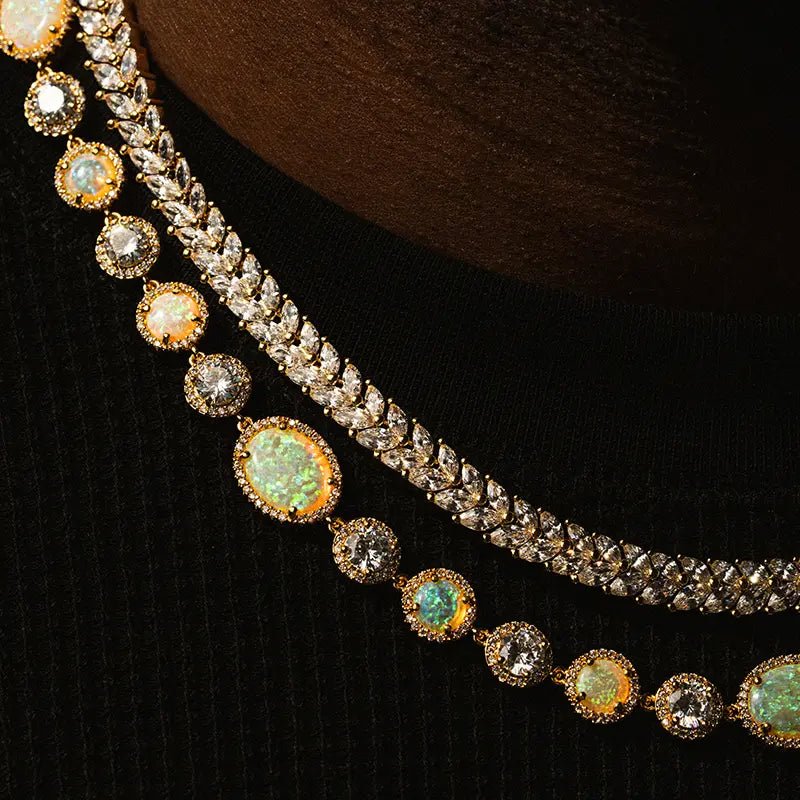
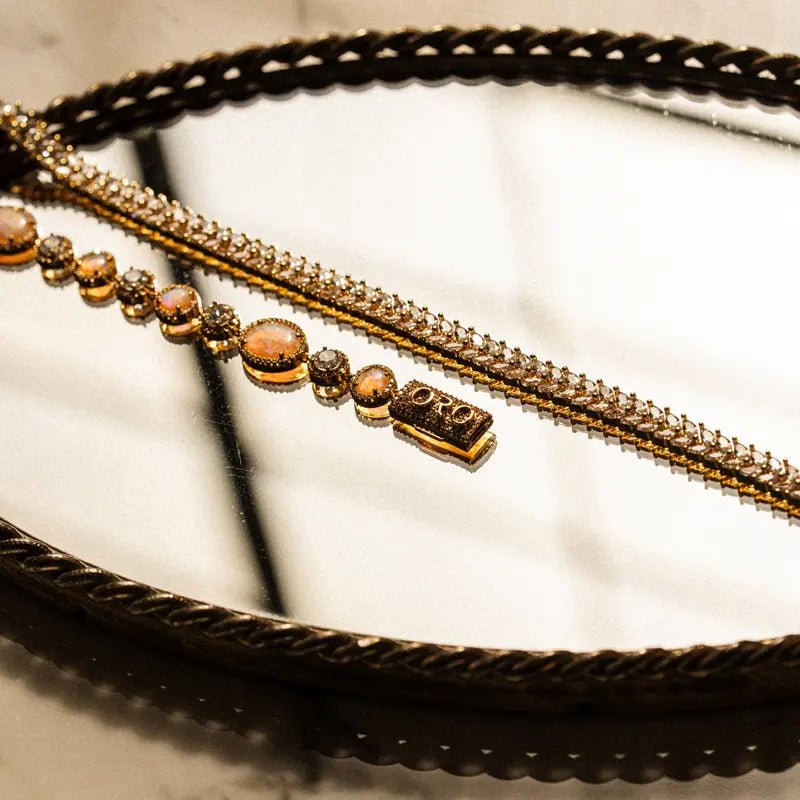



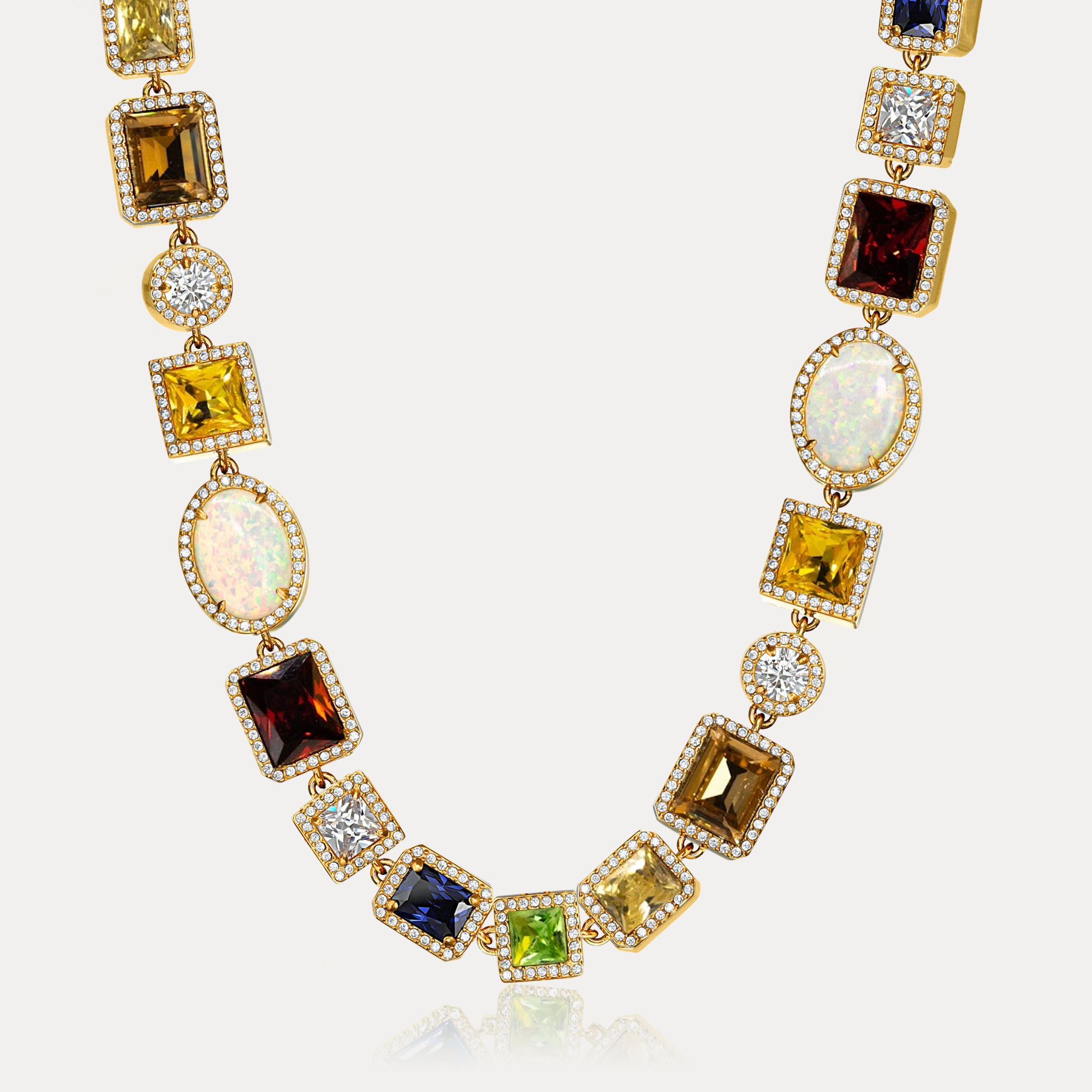

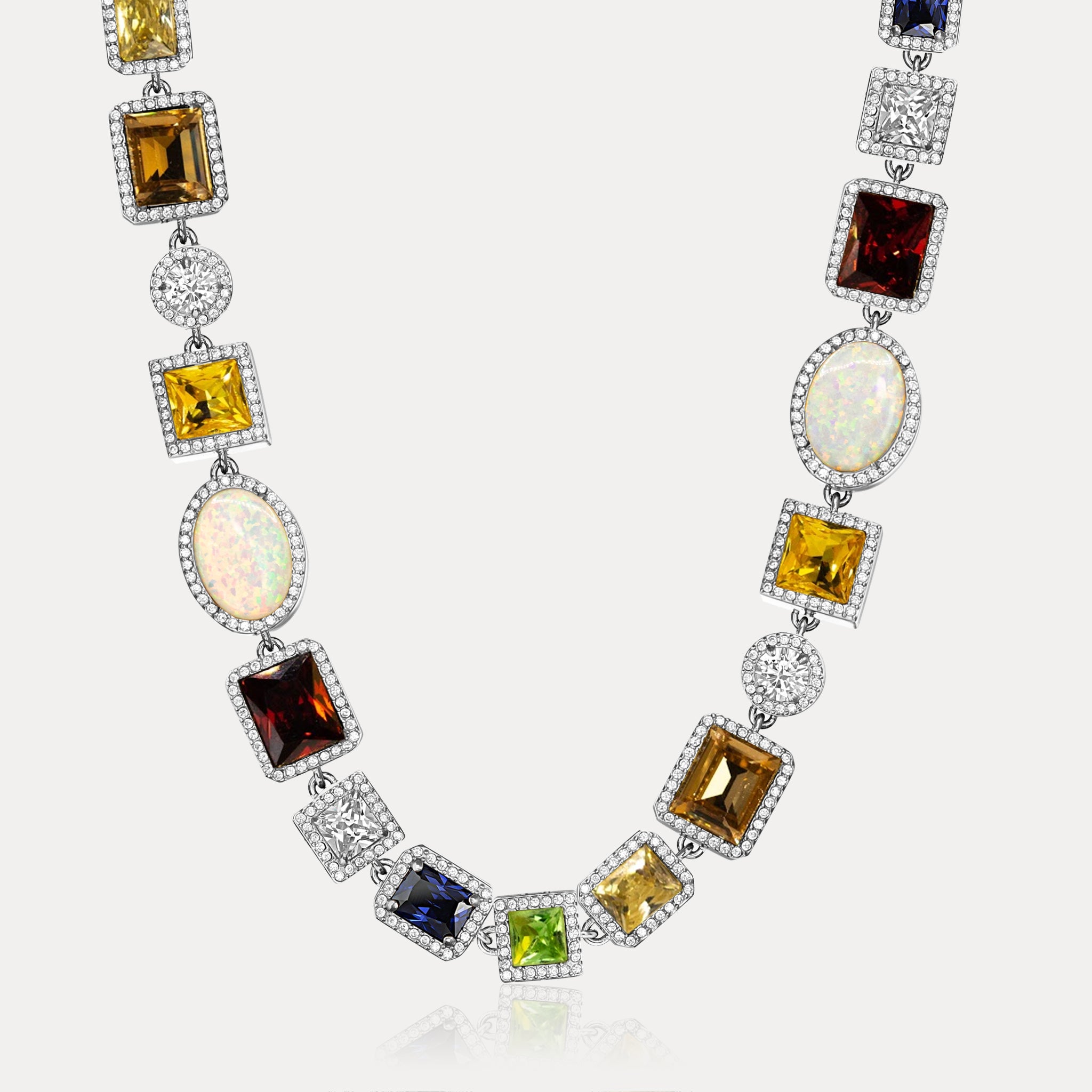
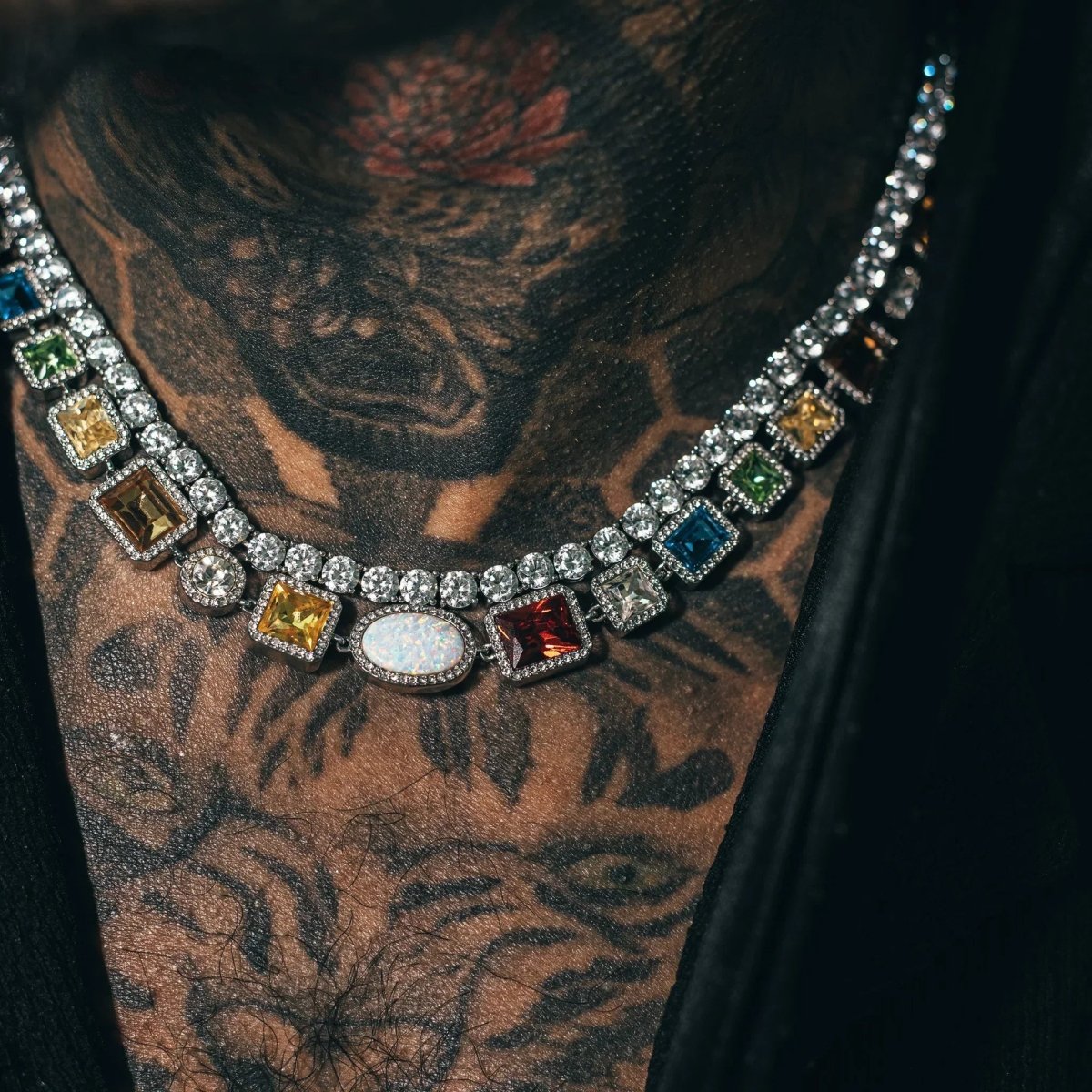
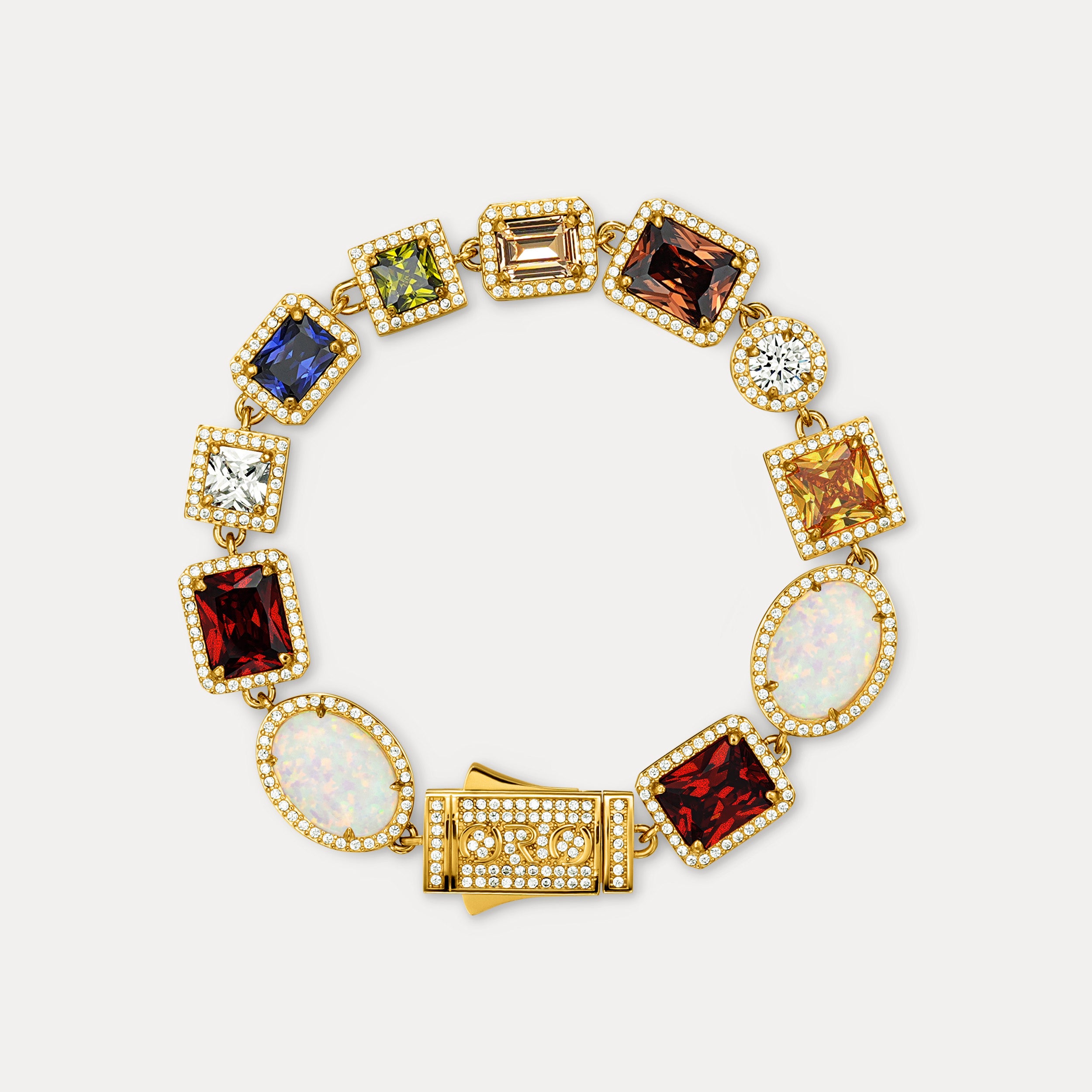

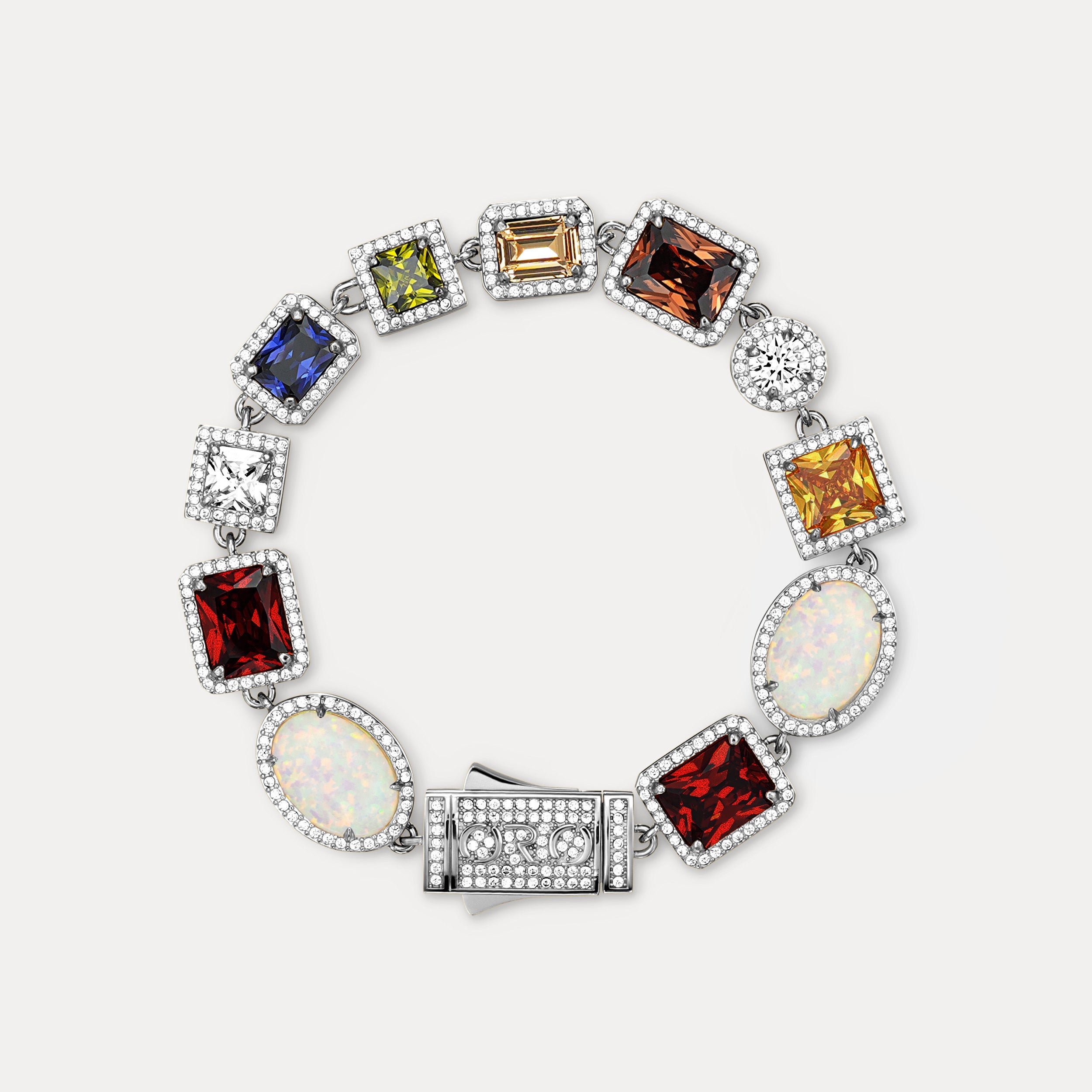

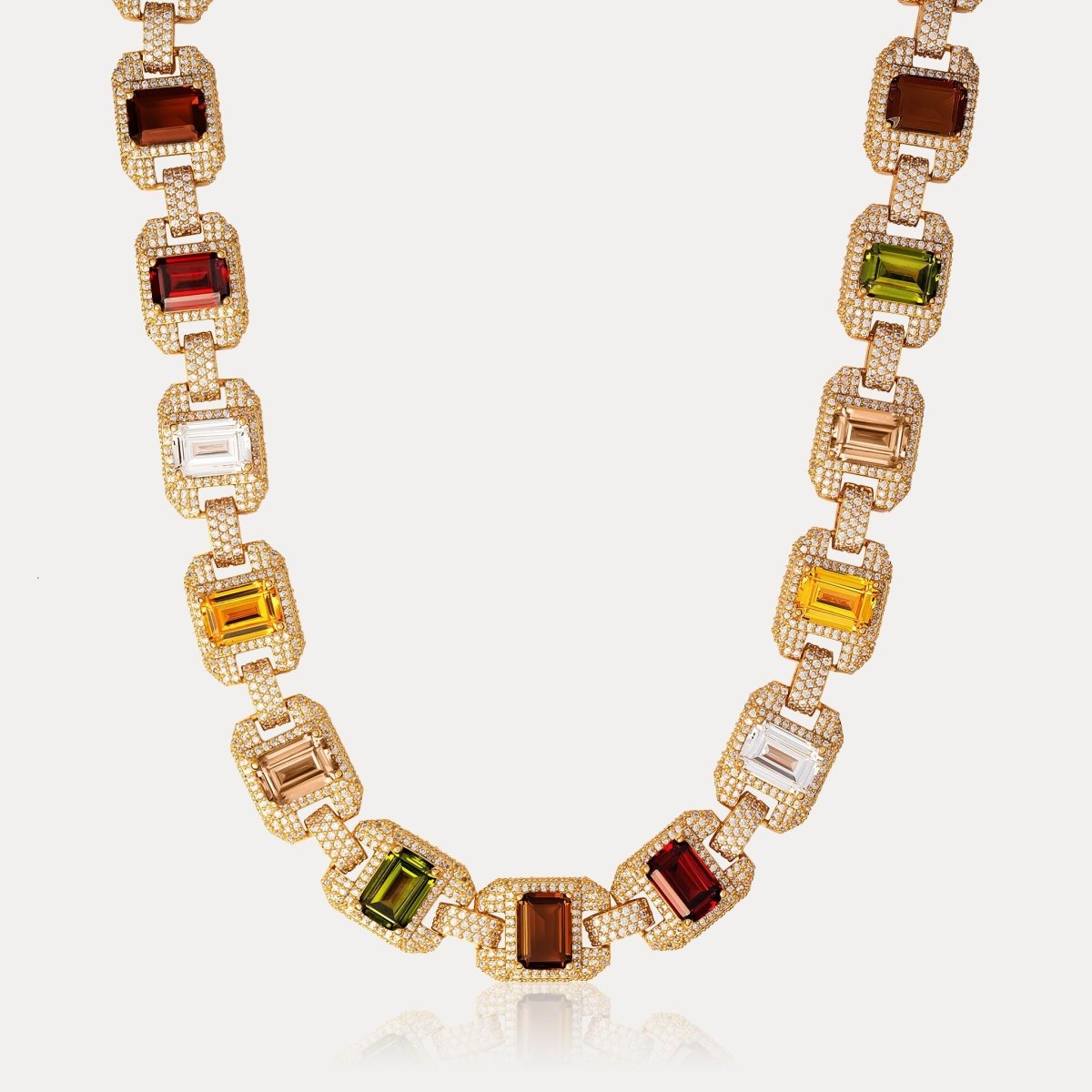



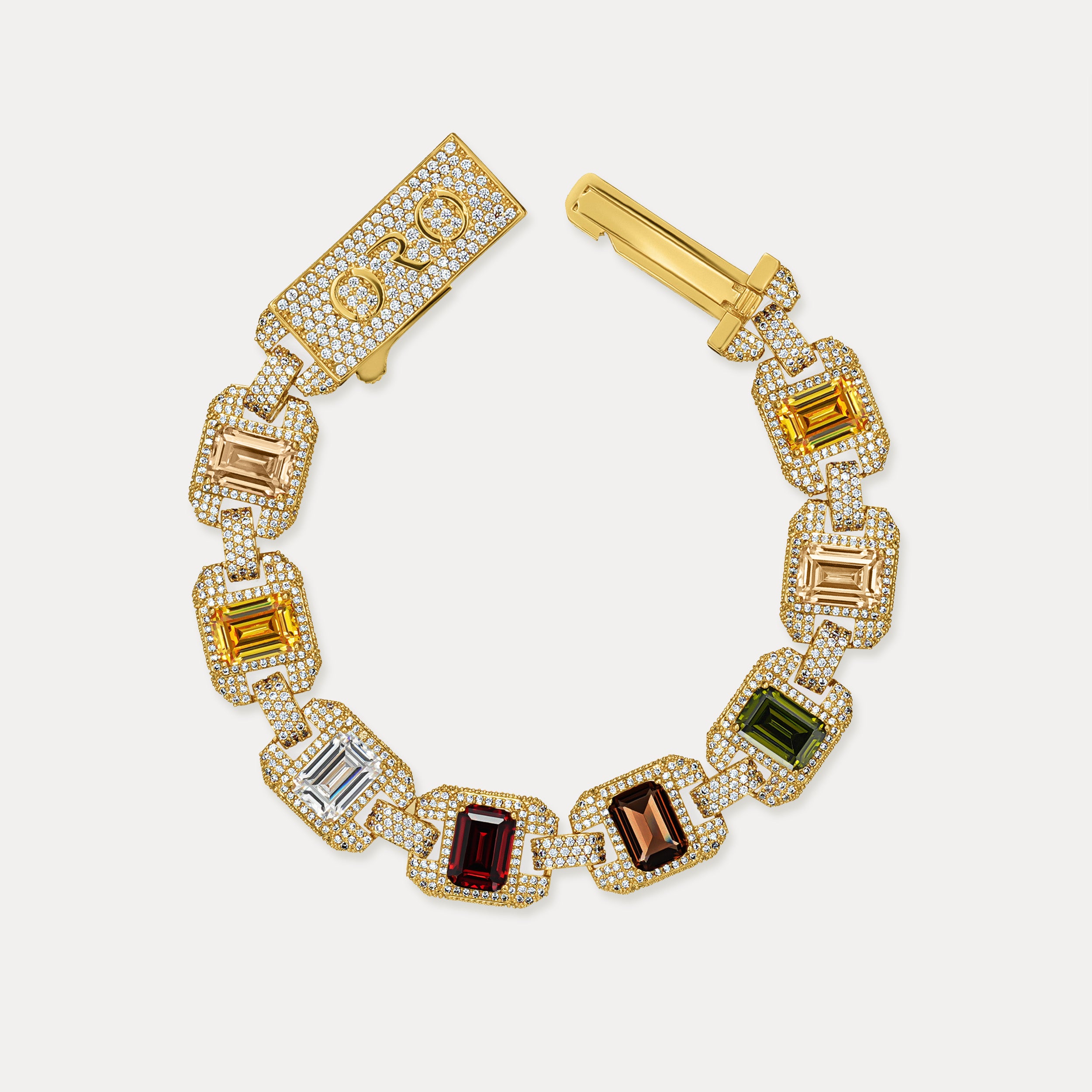

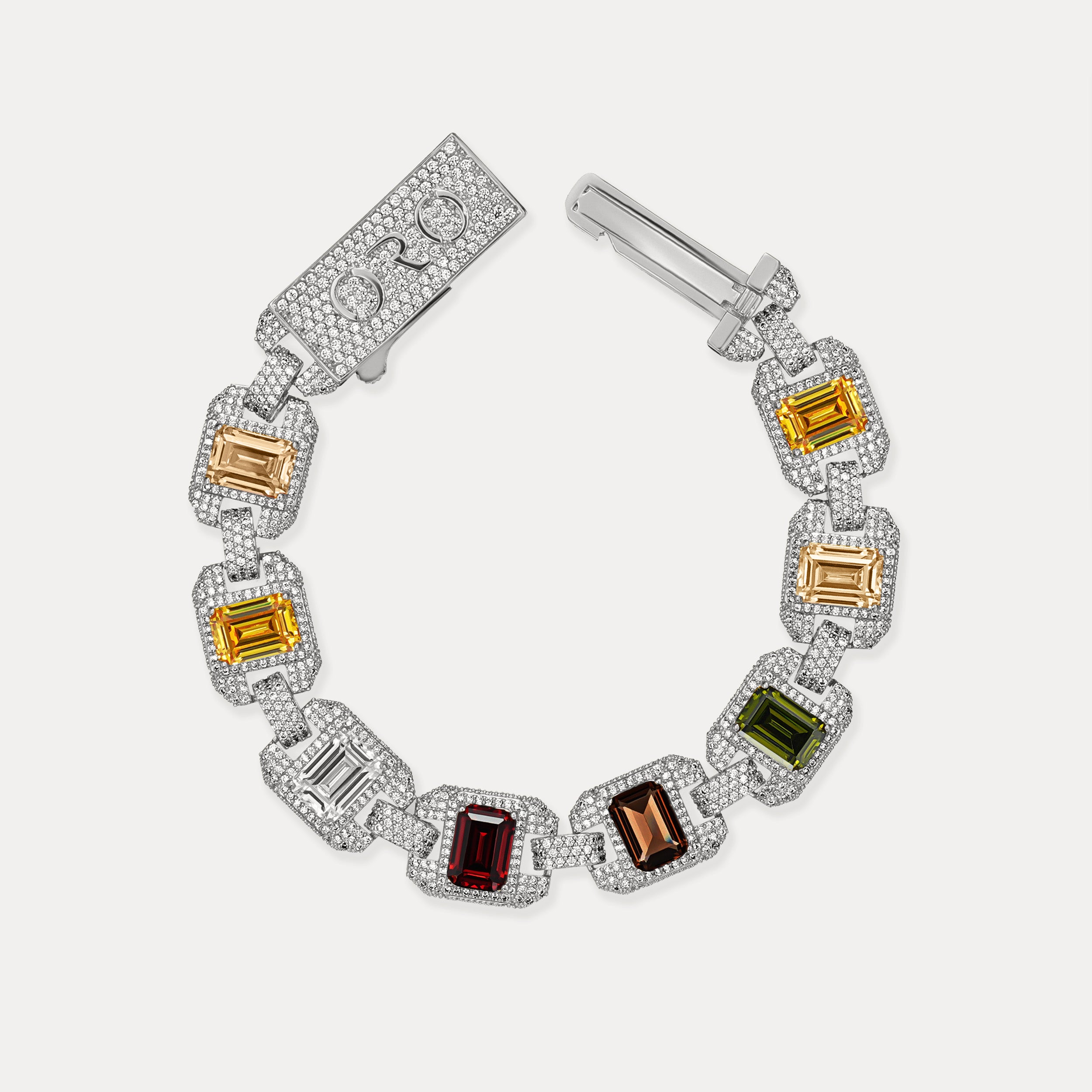

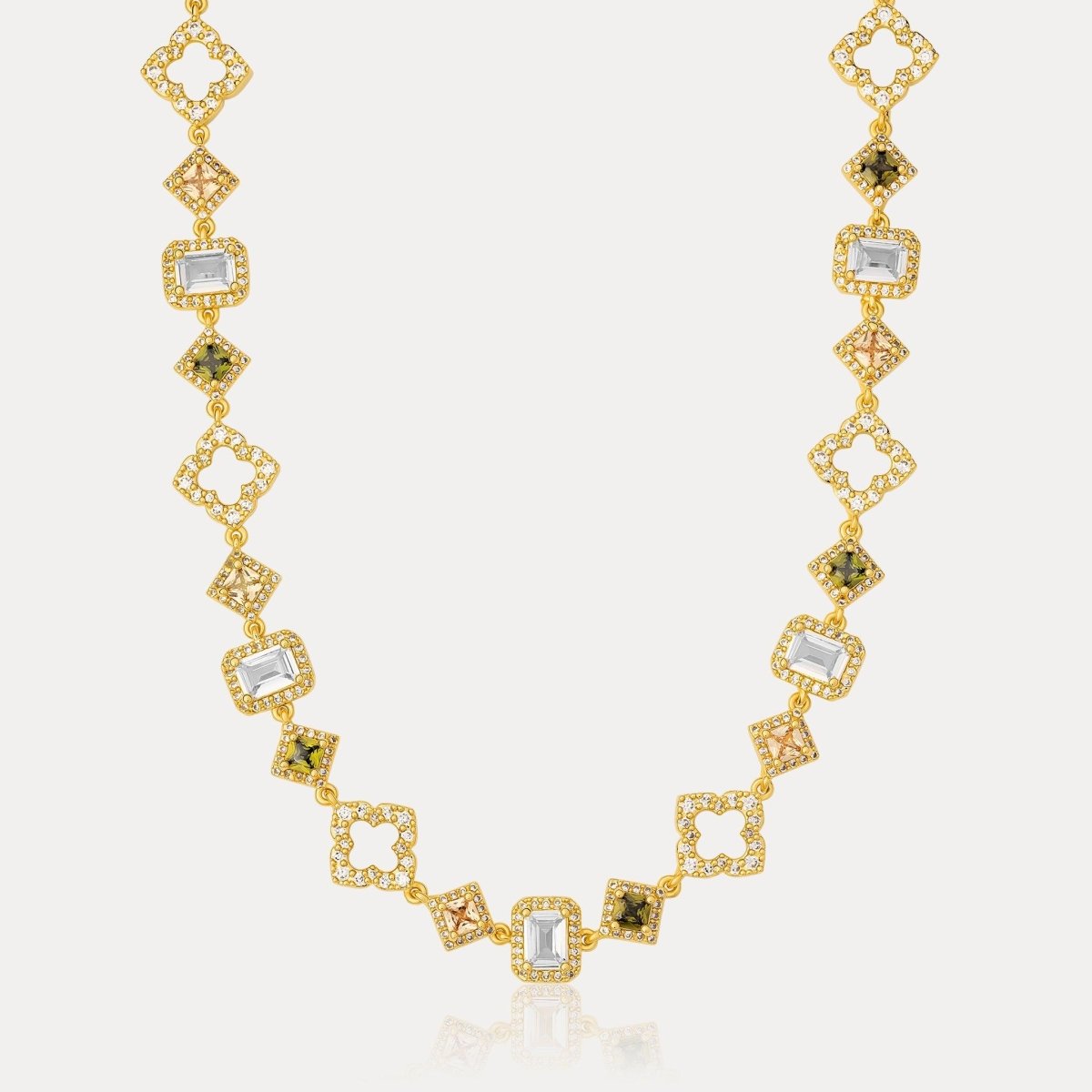

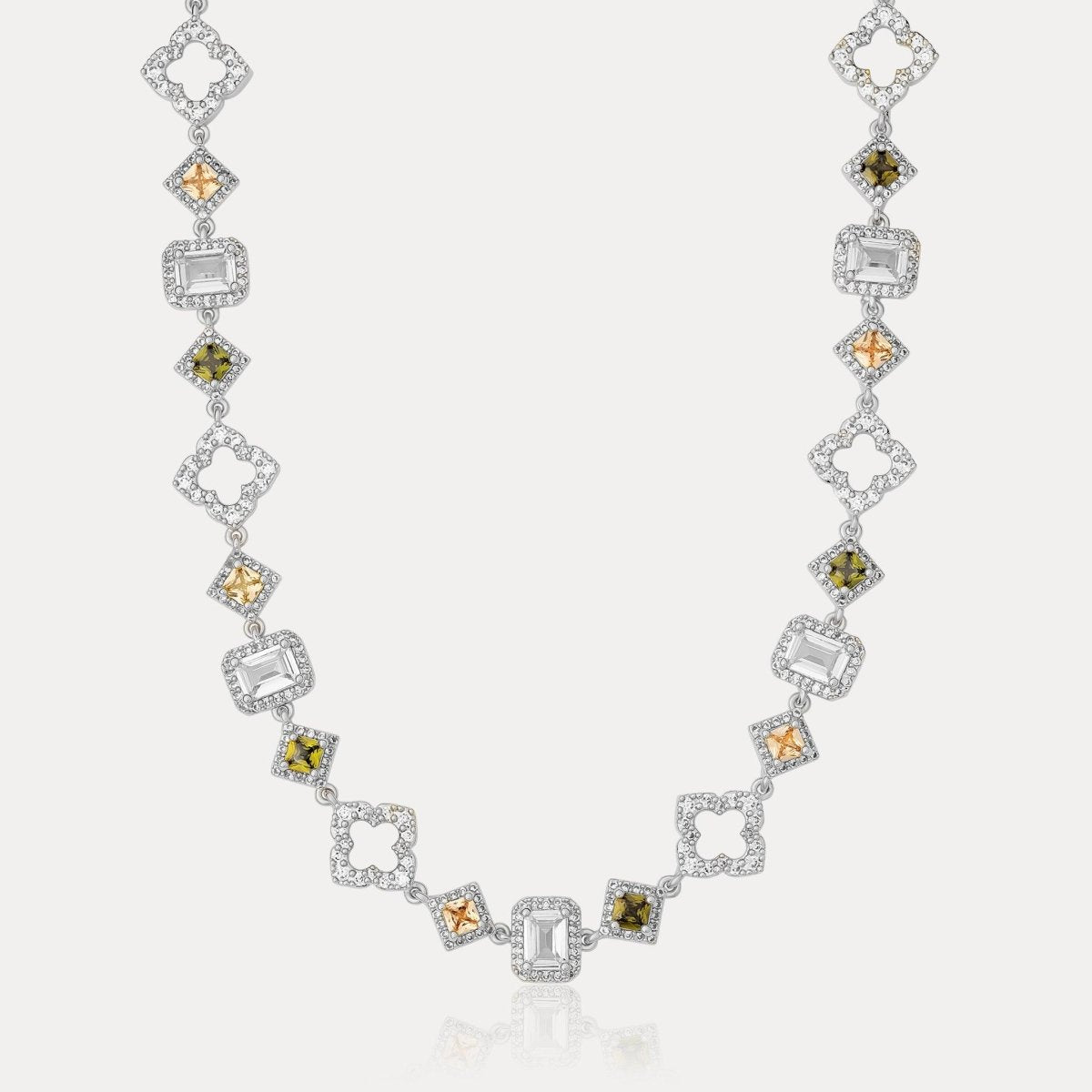

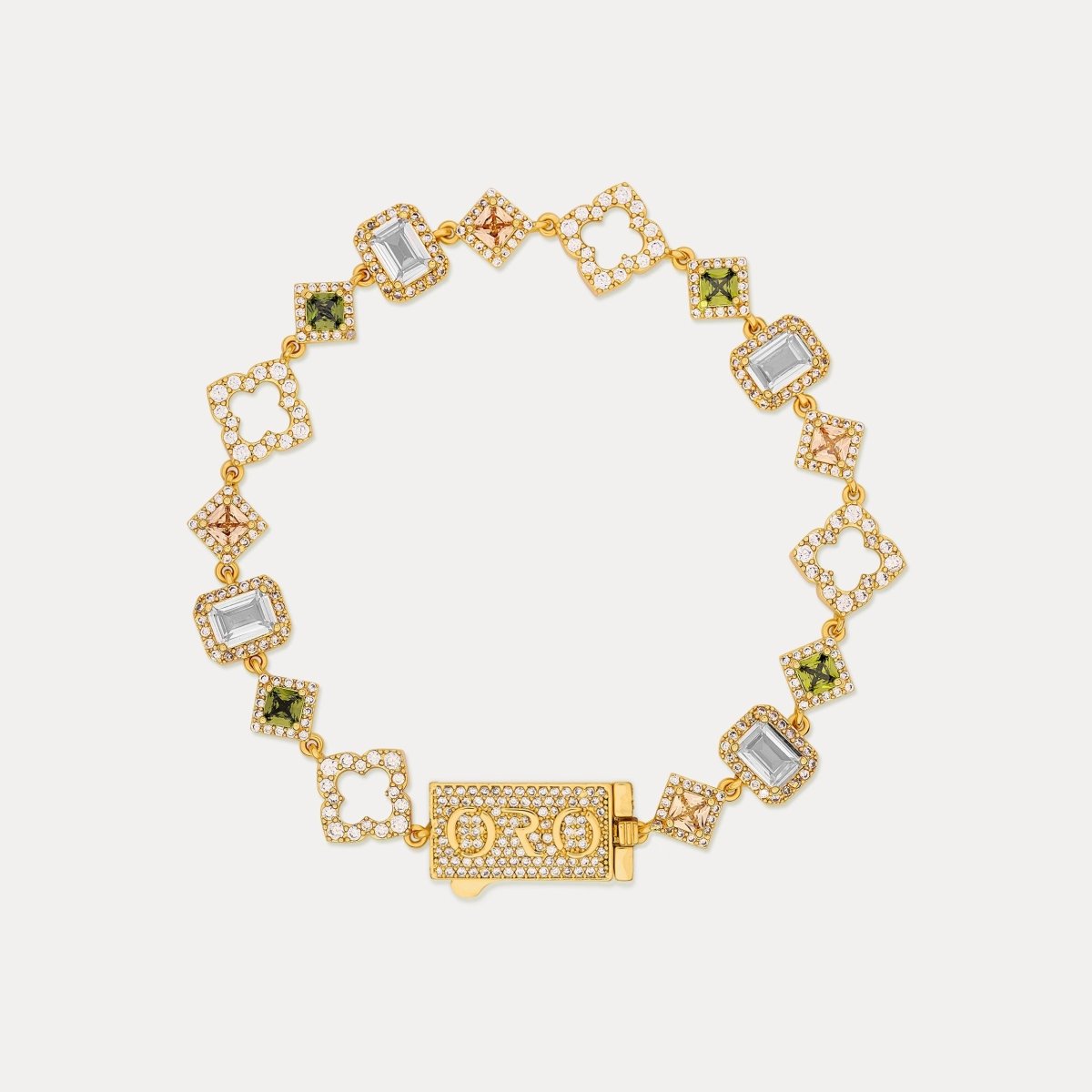

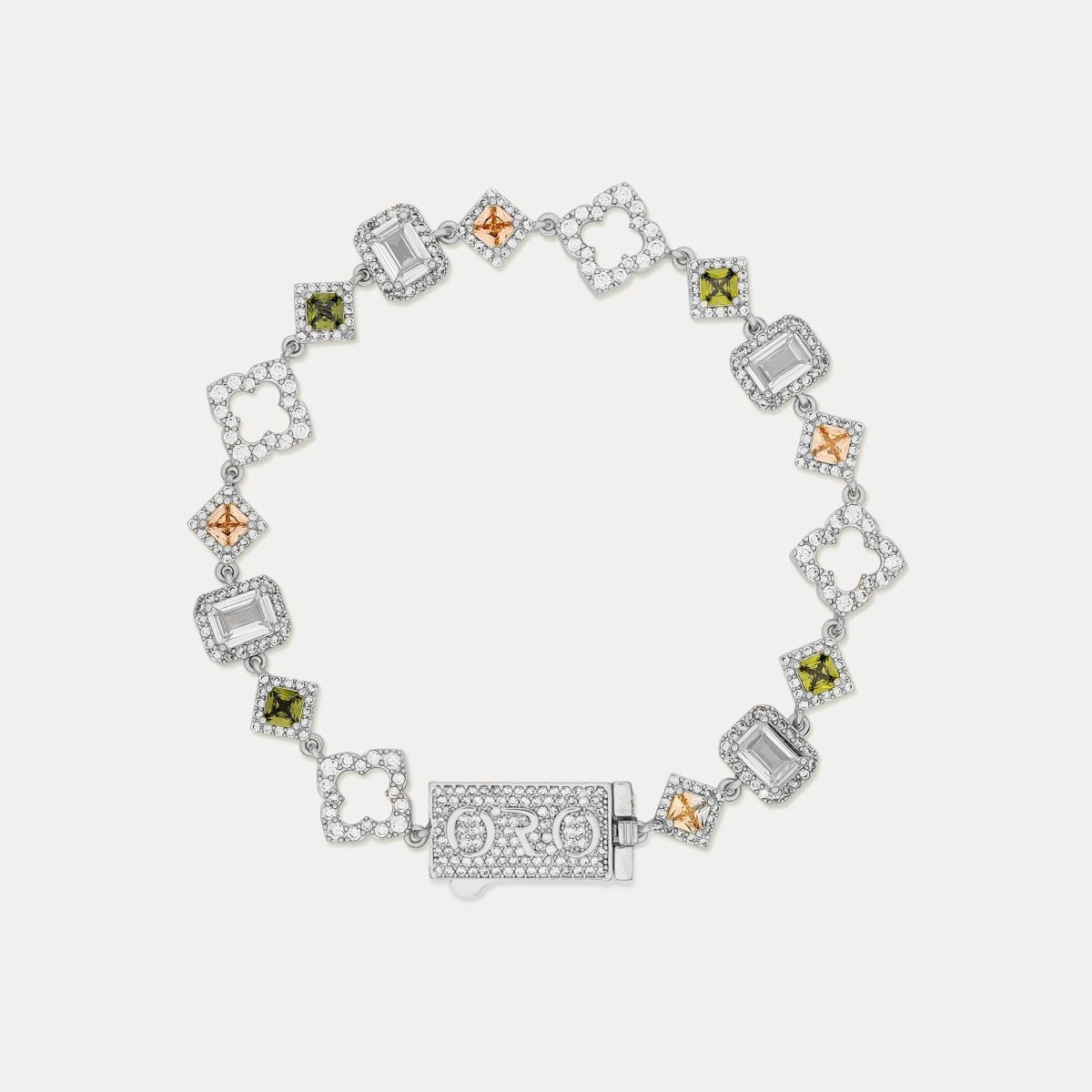
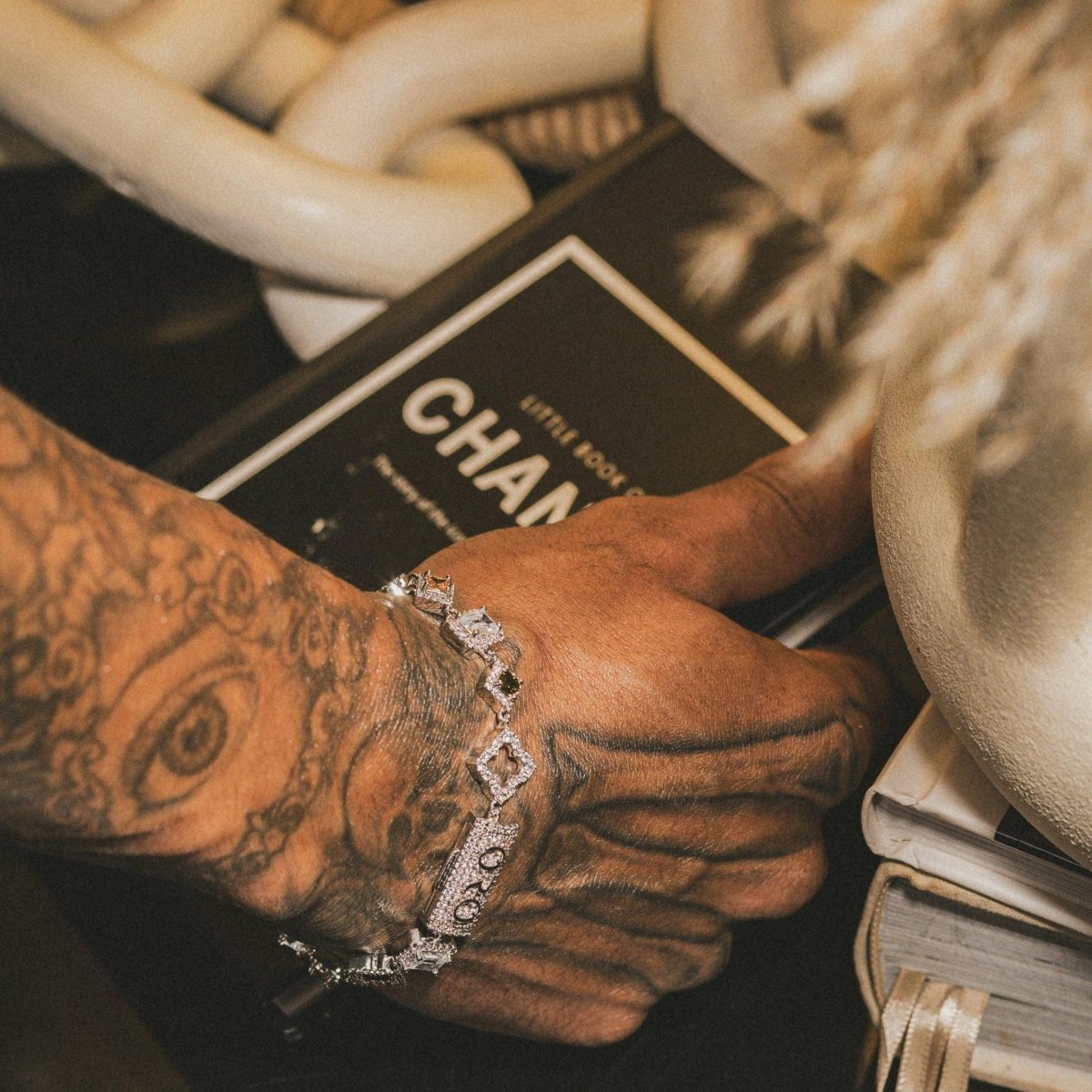
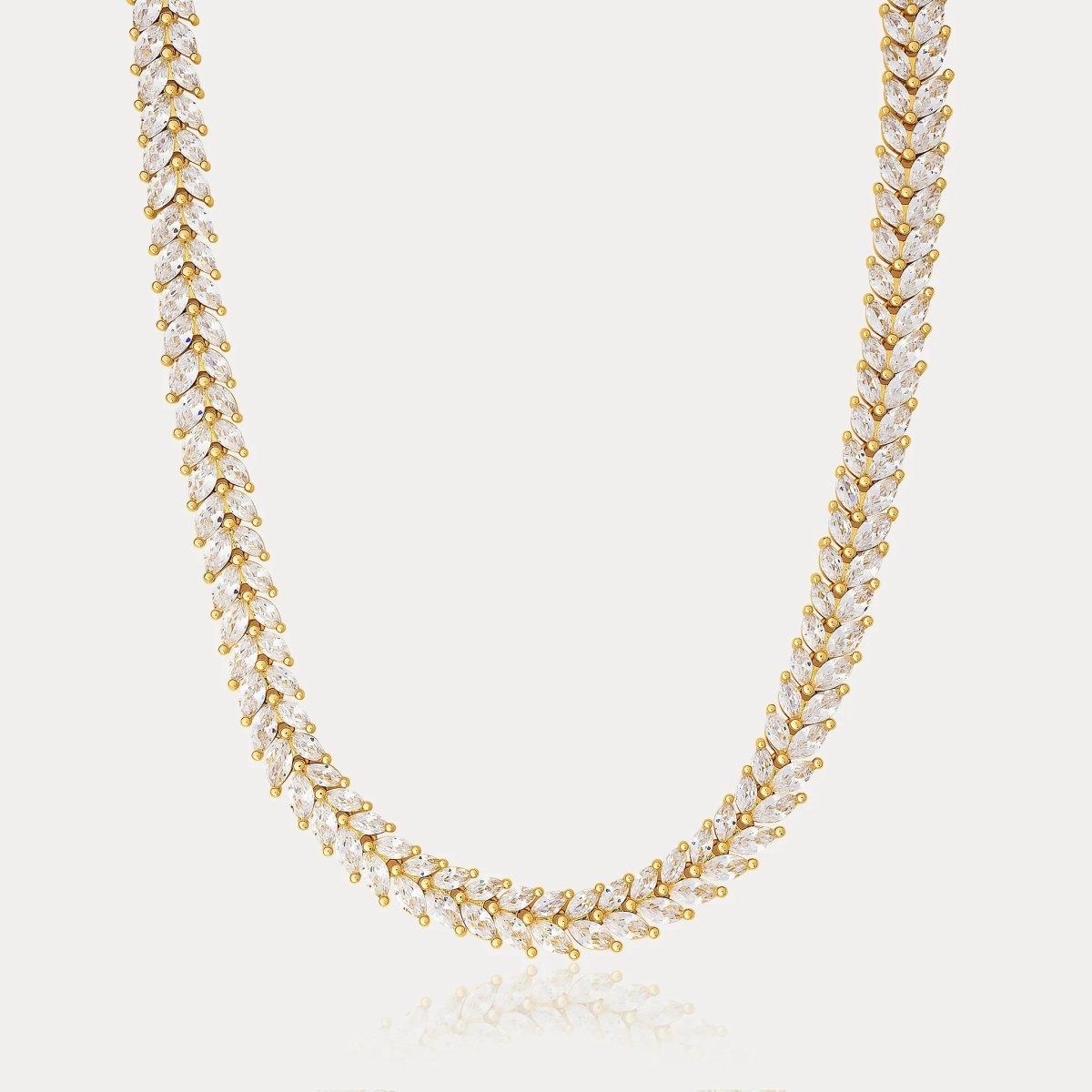
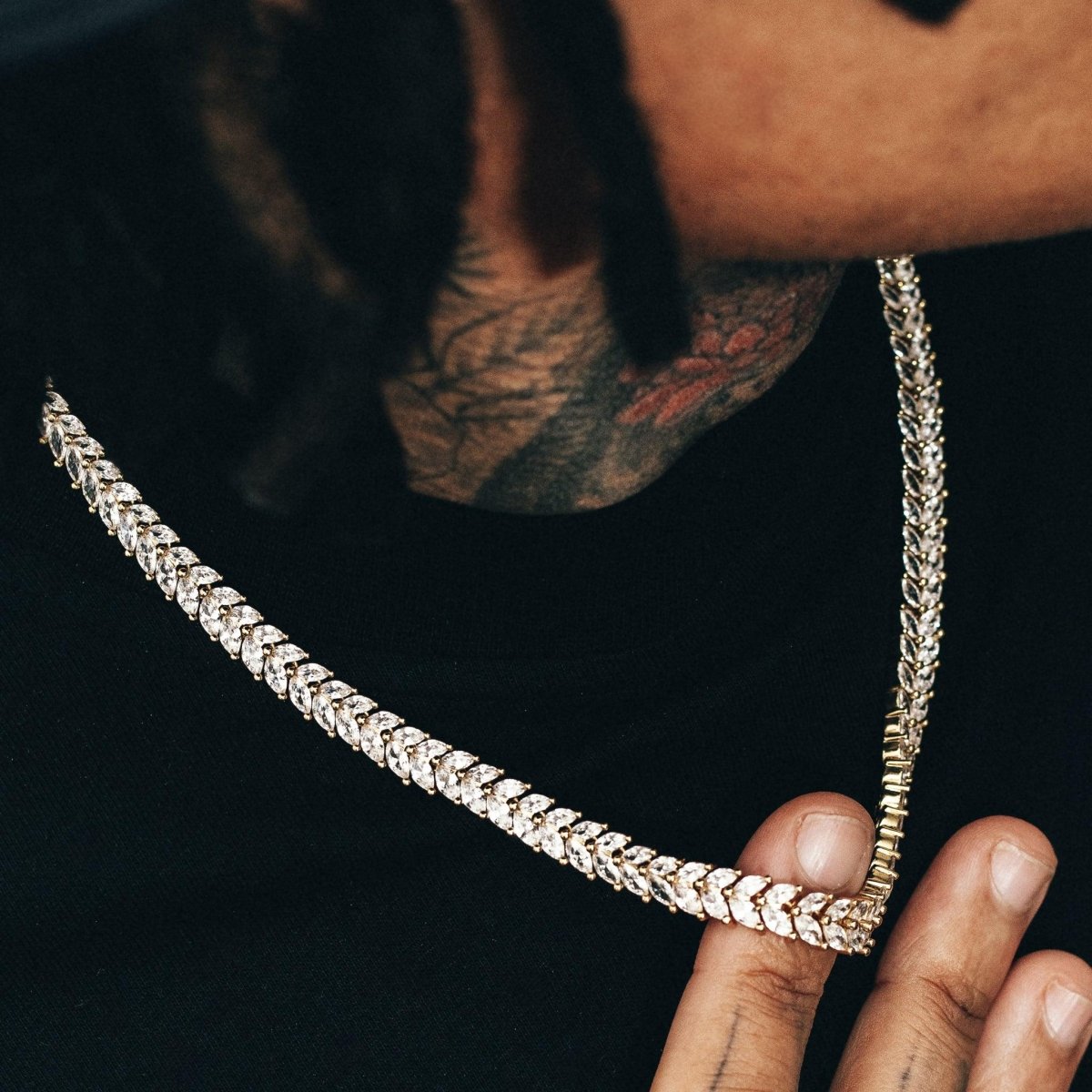
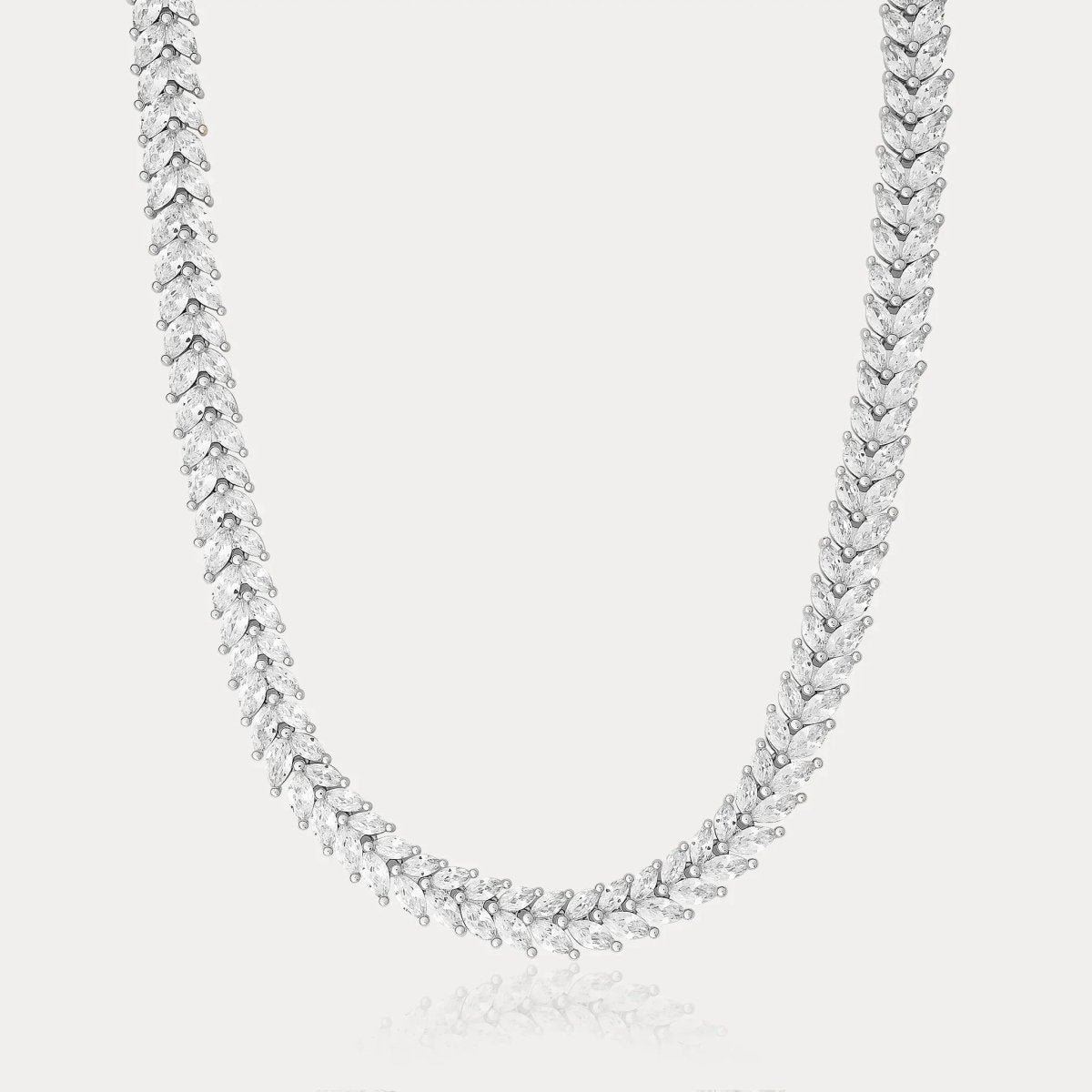

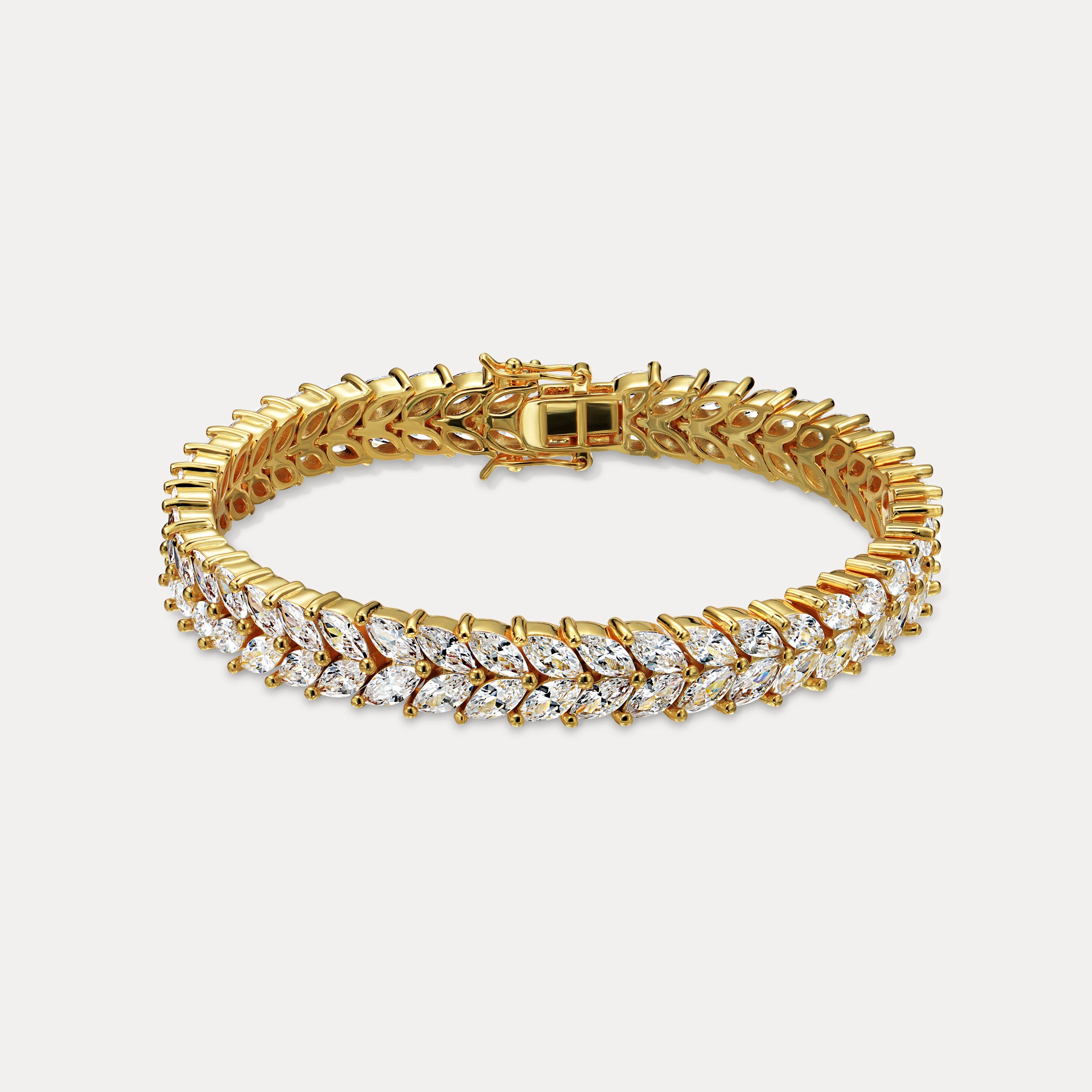

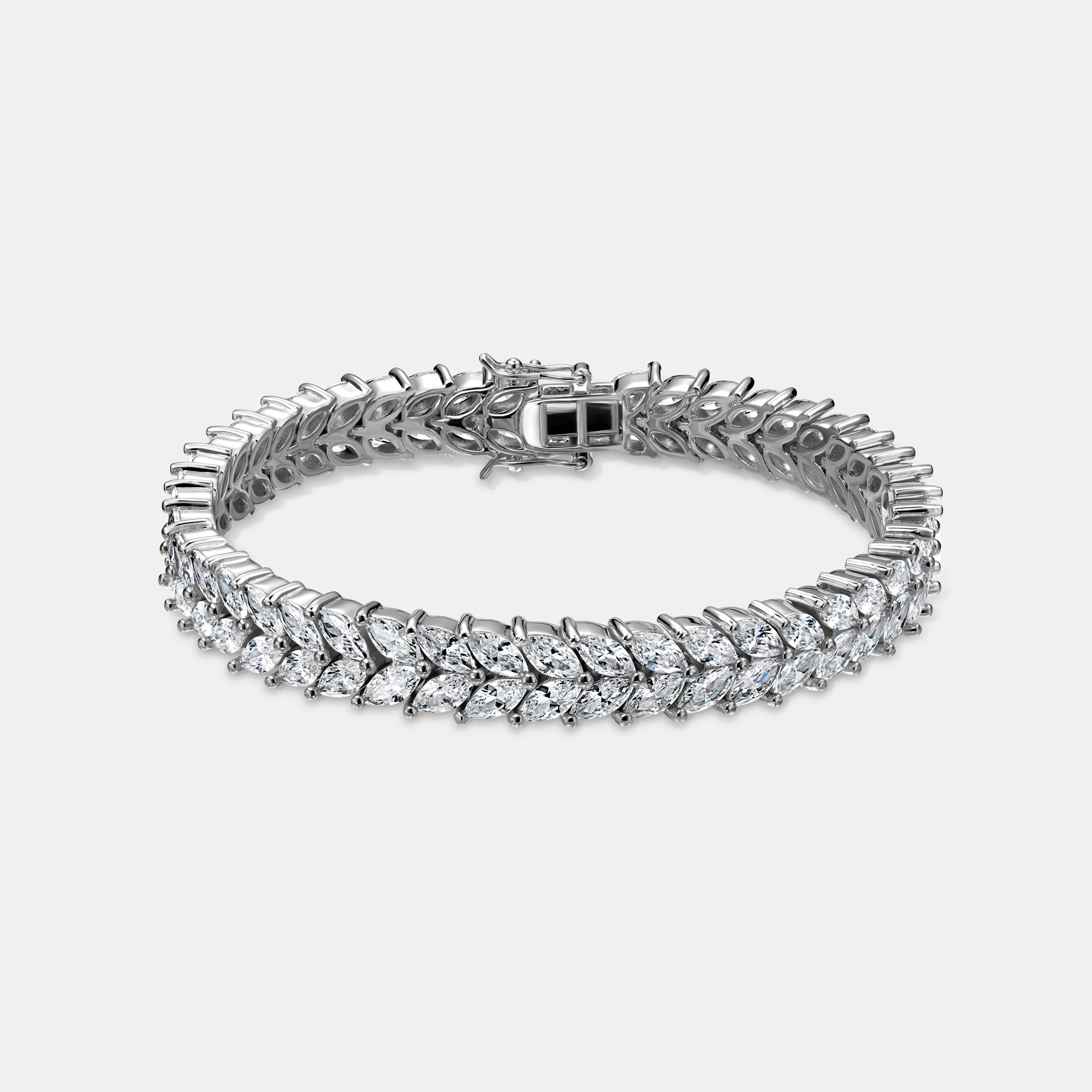

Leave a comment
This site is protected by hCaptcha and the hCaptcha Privacy Policy and Terms of Service apply.